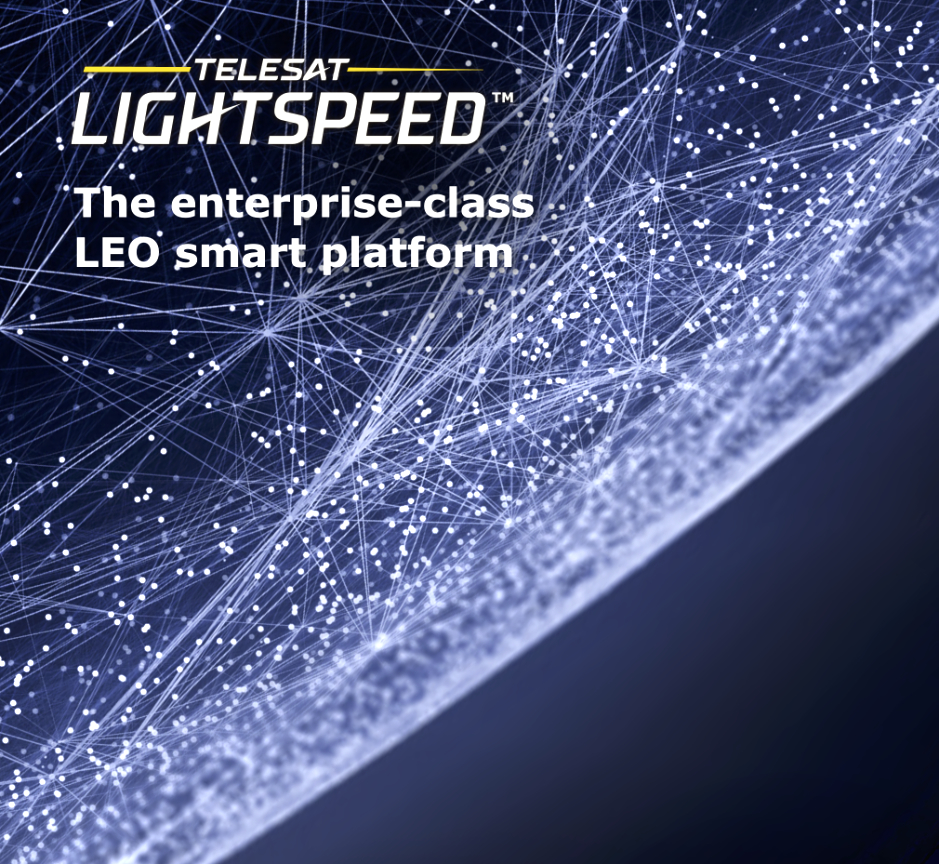
Telesat reported an underwhelming set of Q1 numbers. Every key metric showed a decline in revenues. Overall revenue was down a worrying 17 percent year-on-year to C$152 million (€103.1 million) for the three months to March 31st.
“The decrease was primarily due to a reduction of services and lower rate on the renewal of a long-term agreement with a North American DTH customer as well as lower revenue from certain mobility and Latin American customers and lower equipment sales to Canadian Government customers,” said the company.
Poor as its numbers were, there’s light at the end of the tunnel. CEO Dan Goldberg told analysts that Lightspeed, the company’s proposed LEO, 198-craft fleet now under construction, would make a material difference.
“We believe Lightspeed will revolutionise broadband connectivity for enterprise and government users and represents a highly compelling growth and value creation opportunity for Telesat and its stakeholders,” he said.
Telesat reminded analysts that the final approvals for part of the scheme’s funding was now in place for – at least – 156 of the satellites, and which is enough to provide a full service.
The cash, C$1.25 billion plus investments, means that Telesat has C$1.76 billion ready to fund the build. Lightspeed’s prime contractor is Ontario-based MDA Space. Other key metrics show that Telesat’s backlog is C$1.2 billion and fleet use is just 77 per cent (down from 85 percent just three months earlier).

“The biggest [decline] has been in the cruise space, and in particular for us in the Caribbean,” Goldberg said. “We have a meaningful amount of capacity there,” with the company adding that Telesat was losing cruise contracts to Elon Musk’s Starlink.
The current plan for Lightspeed is for launches to start in 2026, and for global service to begin in 2027. Telesat/Lightspeed has a 14-launch agreement with SpaceX.
Also, Avanti Communications, the multi-orbit satellite technology provider, has announced the launch of LEO satellite connectivity services in South Africa.

Avanti has partnered with Q-KON, a satellite engineering enterprise for southern Africa, to deliver seamless LEO connectivity from Eutelsat OneWeb. The new deal is set to improve business operations nationwide in what is a challenging connectivity environment.

Avanti and Q-KON are delivering on the increased demand for LEO connectivity within the region. The deal bolsters Avanti’s multi-orbit solution and means the company can now offer a combination of LEO and GEO services effective immediately.
Kyle Whitehill, CEO, Avanti Communications, said, “We are delighted to be partnering with Q-KON to provide LEO services to our customers across South Africa. This is a strategically significant move for us in multi-orbit and we hope that this is the first of many LEO partnerships globally. This hybrid model gives our customers in South Africa the assurance that all their unique problems can be solved through our services. This is particularly important for our enterprise customers in South Africa where the need for resilience is key.”
Dr. Dawie de Wet, CEO of Q-KON, said, “We are pleased to support Avanti with our Eutelsat OneWeb customer-centric services, made possible by our proven Smart Satellite Service technologies developed for our Twoobii GEO portfolio. We also look forward to supporting Avanti with our end-to-end and turn-key project supply, delivery and support capabilities.”

